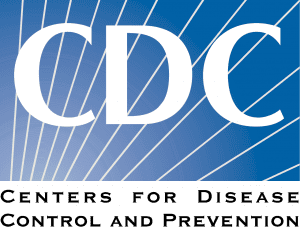- Attributes and predictors of Long-COVID: analysis of COVID cases and their symptoms collected by the Covid Symptoms Study App
Reports of “Long-COVID”, are rising but little is known about prevalence, risk factors, or whether it is possible to predict a protracted course early in the disease. Authors analysed data from 4182 incident cases of COVID-19 who logged their symptoms prospectively in the COVID Symptom Study app. 558 (13.3%) had symptoms lasting >28 days, 189 (4.5%) for >8 weeks and 95 (2.3%) for >12 weeks. Long-COVID was characterised by symptoms of fatigue, headache, dyspnoea and anosmia and was more likely with increasing age, BMI and female sex. Experiencing more than five symptoms during the first week of illness was associated with Long-COVID, OR=3.53 [2.76;4.50]. A simple model to distinguish between short and long- COVID at 7 days, which gained a ROC-AUC of 76%, was replicated in an independent sample of 2472 antibody positive individuals. This model could be used to identify individuals for clinical trials to reduce long-term symptoms and target education and rehabilitation services. - Afucosylated IgG characterizes enveloped viral responses and correlates with COVID-19 severity
IgG antibodies are crucial for protection against invading pathogens. A highly conserved N-linked glycan within the IgG-Fc tail, essential for IgG function, shows variable composition in humans. Afucosylated IgG variants are already used in anti-cancer therapeutic antibodies for their elevated activity through Fc receptors (FcγRIIIa). Afucosylated IgG (~6% of total IgG in humans) are specifically formed against enveloped viruses but generally not against other antigens. This mediates stronger FcγRIIIa responses, but also amplifies brewing cytokine storms and immune-mediated pathologies. Critically ill COVID-19 patients, but not those with mild symptoms, had high levels of afucosylated IgG antibodies against SARS-CoV-2, amplifying pro-inflammatory cytokine release and acute phase responses. Thus, antibody glycosylation plays a critical role in immune responses to enveloped viruses, including COVID-19.
- More people are getting COVID-19 twice, suggesting immunity wanes quickly in some
Excellent article at Science summarizing the known cases of reinfection with SARS-CoV-2 after recovery. To count as a case of reinfection, a patient must have had a positive polymerase chain reaction (PCR) test twice with at least one symptom-free month in between. Most journals also demand to see two full viral genome sequences, from the first and second illnesses, that are sufficiently different. Some but not all reinfections are milder.
- Induction of alarmin S100A8/A9 mediates activation of aberrant neutrophils in the pathogenesis of COVID-19
The unique signature of early immune responses to SARS-CoV-2 remains elusive. Authors characterized the transcriptome of rhesus macaques and mice infected with SARS-CoV-2. Alarmin S100A8 was robustly induced in SARS-CoV-2-infected animal models as well as in COVID-19 patients. Paquinimod, a specific inhibitor of S100A8/A9, could rescue the pneumonia with substantial reduction of viral loads in SARS-CoV-2-infected mice. Remarkably, Paquinimod treatment resulted in almost 100% survival in a lethal model of mouse coronavirus infection using the mouse hepatitis virus (MHV). A group of neutrophils that contributes to the uncontrolled pathological damage and onset of COVID-19 was dramatically induced by coronavirus infection. Paquinimod treatment could reduce these neutrophils and regain anti-viral responses, unveiling key roles of S100A8/A9 and aberrant neutrophils in the pathogenesis of COVID-19, highlighting new opportunities for therapeutic intervention.
- ApoE isoform-dependent SARS-CoV-2 neurotropism and cellular response
ApoE4, a strong genetic risk factor for Alzheimer’s disease, has been associated with increased risk for severe COVID-19. However, it is unclear whether ApoE4 alters COVID-19 susceptibility or severity and the role of direct viral infection in brain cells remains obscure. We tested the neurotropism of SARS-CoV2 in human induced pluripotent stem cell (hiPSC) models and observed low-grade infection of neurons and astrocytes that is boosted in neuron-astrocyte co-cultures and organoids. We then generated isogenic ApoE3/3 and ApoE4/4 hiPSCs and found an increased rate of SARS-CoV-2 infection in ApoE4/4 neurons and astrocytes. ApoE4 astrocytes exhibited enlarged size and elevated nuclear fragmentation upon SARS-CoV-2 infection. Finally, we show that remdesivir treatment prevents SARS-CoV2 infection of hiPSC- neurons and astrocytes. These findings suggest that ApoE4 may play a causal role in COVID-19 severity. Understanding how risk factors impact COVID-19 susceptibility and severity will help us understand potential long-term effects in different patient populations.
Situation Dashboards



World Health Organization (WHO)


Johns Hopkins University (JHU)


COVID-19 in US and Canada







